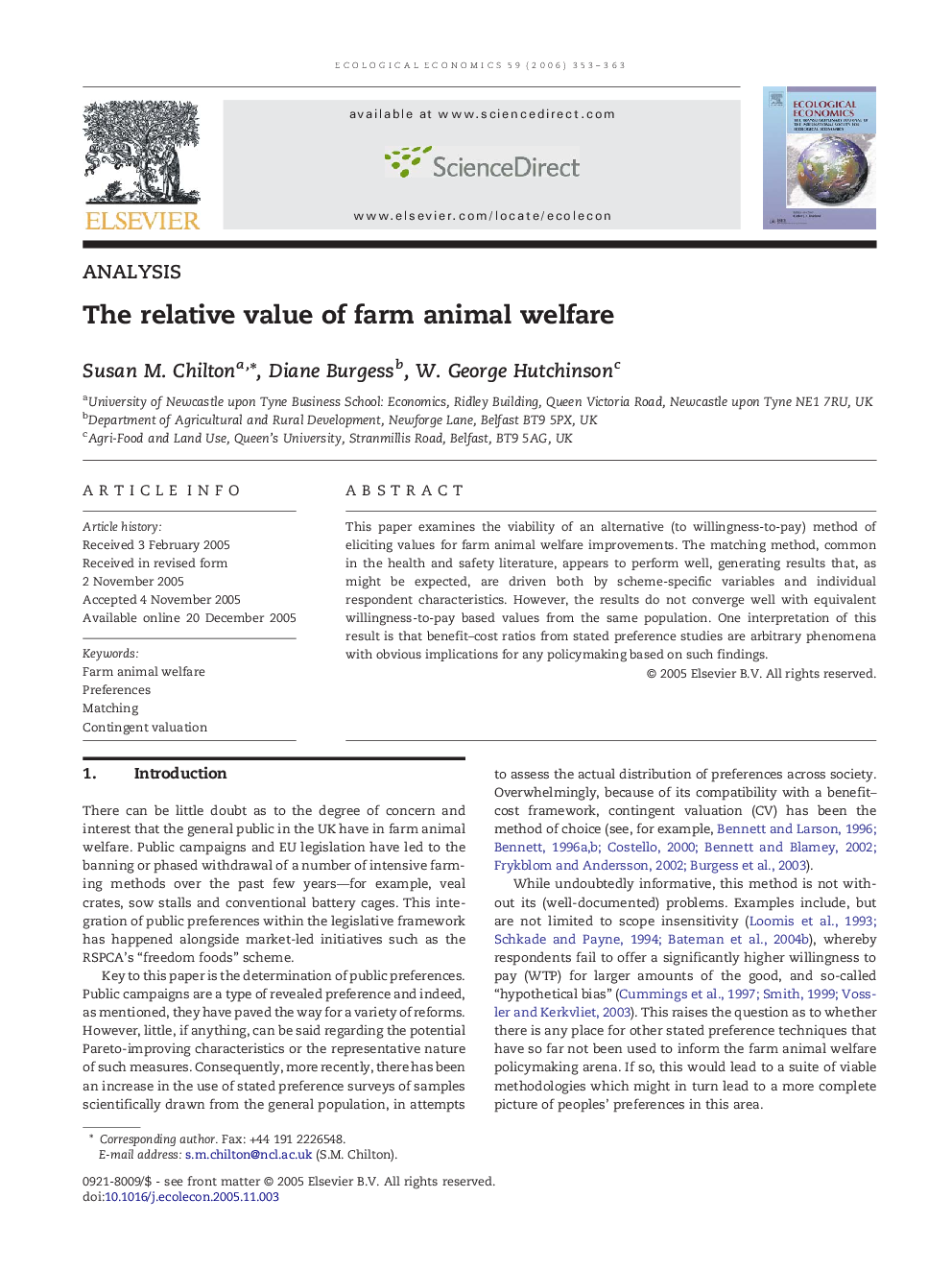| Article ID | Journal | Published Year | Pages | File Type |
|---|---|---|---|---|
| 5052326 | Ecological Economics | 2006 | 11 Pages |
Abstract
This paper examines the viability of an alternative (to willingness-to-pay) method of eliciting values for farm animal welfare improvements. The matching method, common in the health and safety literature, appears to perform well, generating results that, as might be expected, are driven both by scheme-specific variables and individual respondent characteristics. However, the results do not converge well with equivalent willingness-to-pay based values from the same population. One interpretation of this result is that benefit-cost ratios from stated preference studies are arbitrary phenomena with obvious implications for any policymaking based on such findings.
Related Topics
Life Sciences
Agricultural and Biological Sciences
Ecology, Evolution, Behavior and Systematics
Authors
Susan M. Chilton, Diane Burgess, W. George Hutchinson,
